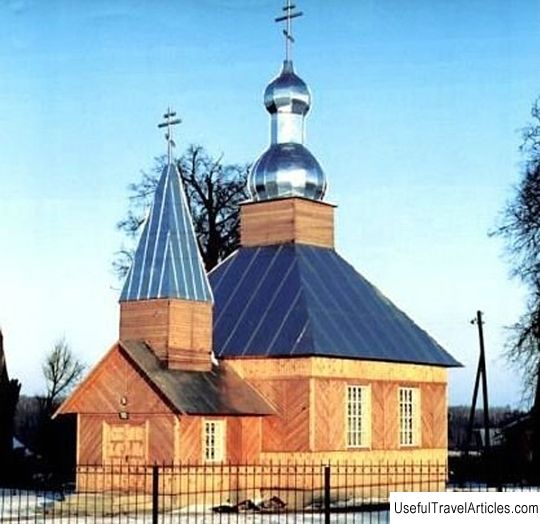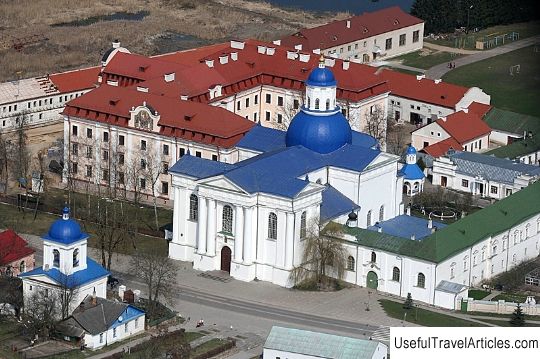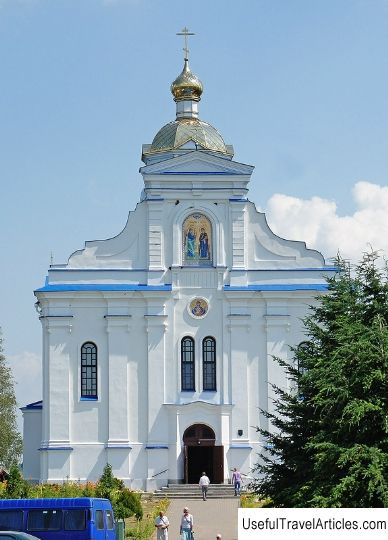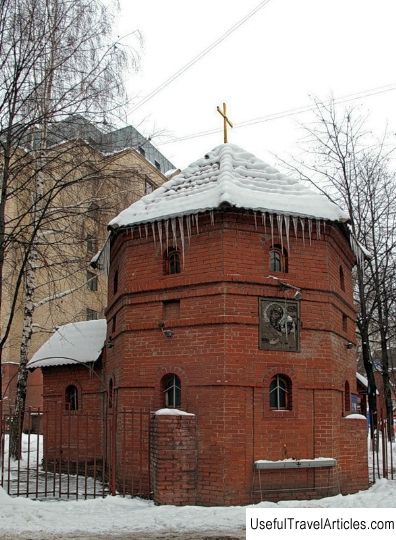Yurovichi monastery description and photos - Belarus: Gomel region
Rating: 7,7/10 (200 votes) 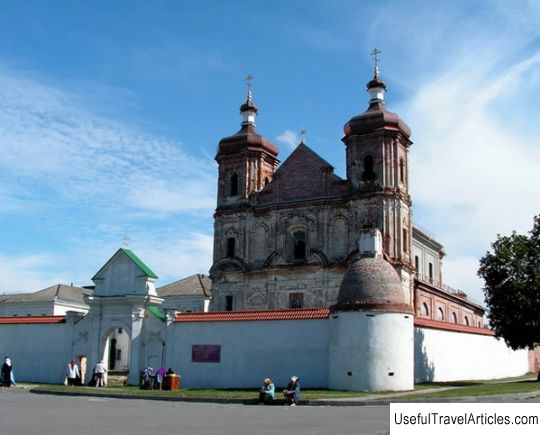
Yurovichi monastery description and photos - Belarus: Gomel region. Detailed information about the attraction. Description, photos and a map showing the nearest significant objects. Photo and descriptionThe monastery in Yurovichi is an ancient shrine of Orthodoxy and Catholicism. According to an old legend, the miraculous icon of the Merciful Mother of God was ordered to be painted by the crown hetman and Krakow Kastelian Stanislav Konceptolsky after the miraculous rescue of the Ukrainian Cossacks from captivity. He carried the icon of the Mother of God with him everywhere, and after his death he ordered the icon to be handed over to the Jesuit monks. In 1661, the Catholic priest Martin Turovsky went on a trip to Polesie with the miraculous icon. In those days, this wild swampy land was sparsely populated. Most of the inhabitants were of the Orthodox faith and the priest was often greeted with hostility, the path was dangerous and not close, but the miraculous image kept him on his journey. So Martin Turovsky got to the village of Yurovichi, where a miraculous sign took place. Horses, rooted to the spot, stopped and did not want to move on. The priest tried in every possible way to move the horses, when suddenly he heard the voice of the Mother of God herself, who announced to him that the miraculous image should remain in Yurovichi. Martin Turovsky remained in the village and in 1673 built a chapel on the site of the miraculous sign, in which and placed an icon named afterwards as the Mother of God Yurovichskaya. An amazing rumor spread throughout the villages and villages that if you pray at the wonderful icon in Yurovichi, then everything that a person asks for, if his request is righteous, will be fulfilled. Martin Turovsky wrote to the Jesuits and invited them to Yurovichi. So in 1680 a Jesuit mission was formed here. Priest Martin Turovsky's fears were not in vain. In 1705, a local resident Kazimir Yarotsky burned down a newly built wooden church, however, the miraculous image remained unharmed in the fire. Only in 1741 was the construction of a church and a monastery made of stone, surrounded by a high fortification wall with defensive towers. The monastery resembles an impregnable fortress, which is explained by the need to defend itself both from a hostile population and from enemy attacks. Leading from the monastery and a secret underground passage, ending at the banks of the Pripyat River. The monastery has survived several sieges. He was robbed by the Cossacks. It was owned by monks of several Catholic orders: Jesuits, Dominicans, Capuchins, Bernardines. In 1812 the monastery was fired upon by Russian artillery from cannons. Cannonballs are still being found. In 1832, the monastery that belonged to the Bernardines at that time was closed by the tsarist authorities of Russia for participating in the national liberation uprising. The last priest of Yurovichy G. Gordzetsky ordered to secretly make a copy of the miraculous icon of the Merciful Mother of God and replace the original with a copy. In 1885, the original image was transported to Krakow to the Church of St. Barbara, where it remains to this day. In 1865 the monastery and church were transferred to the Orthodox Church. The church was rededicated in honor of the Nativity of the Most Holy Theotokos. After the consecration of the church according to the Orthodox tradition, a new miracle happened - the list of the miraculous icon continued to work miracles, for which there are many testimonies. It was decided to reconstruct the temple in the pseudo-Russian style once again, decorating it with 12 domes with bulbs. The church was closed during the Bolshevik terror. In 1938, its rector Vladimir Serebryakov was arrested and executed. During the Great Patriotic War, the Hitlerite commandant's office located within the monastery walls was attacked by partisans. The monastery had to withstand a serious siege. After the war, an orphanage was organized in the monastery. In 1958, one of the pupils fell from the monastery tower, after which they tried to dismantle the monastery into bricks, but they could not - the Jesuits built their monasteries-fortresses for centuries. In 1993, the monastery ruins were transferred to the Orthodox Church. A large-scale reconstruction began. At first they decided to open a nunnery here, and in 2005 it was decided to open a nunnery. Now the reconstruction of the former Bernardine monastery and church is completed.         We also recommend reading Vihula Mois manor description and photos - Estonia: Lahemaa Topic: Yurovichi monastery description and photos - Belarus: Gomel region. |
